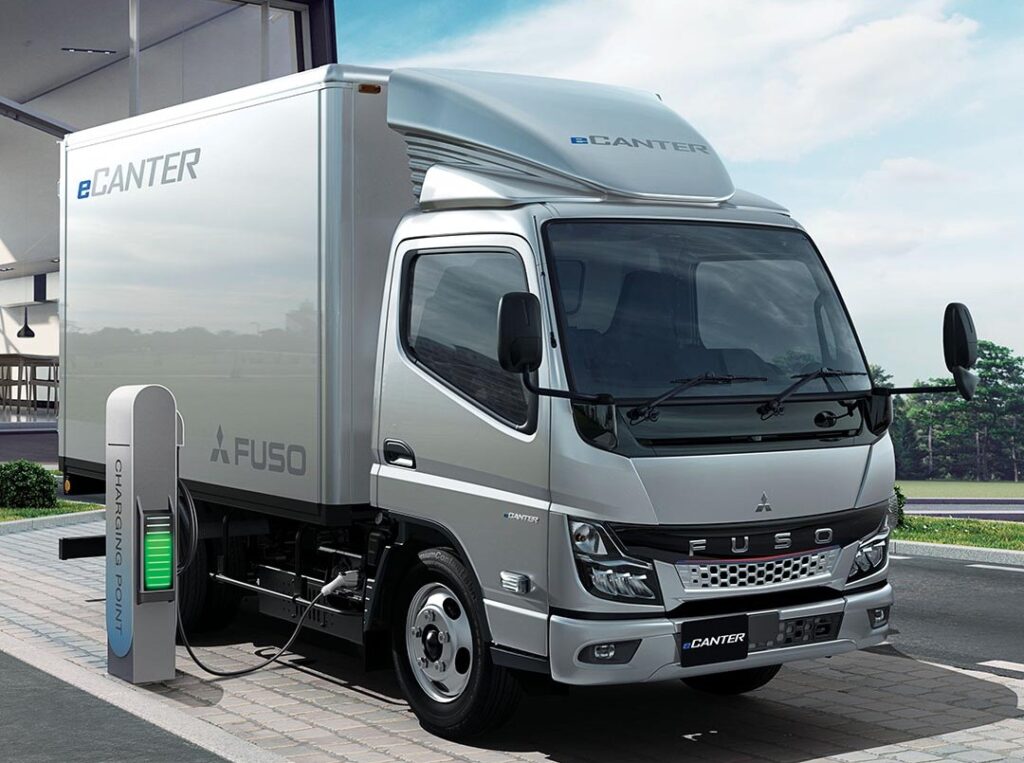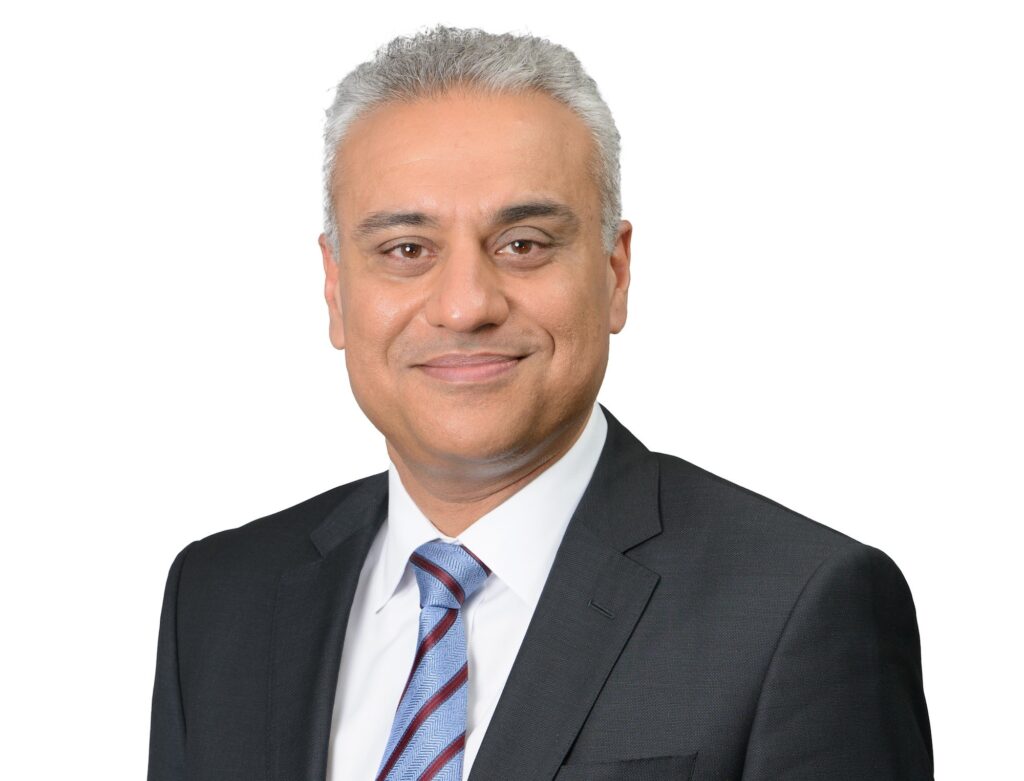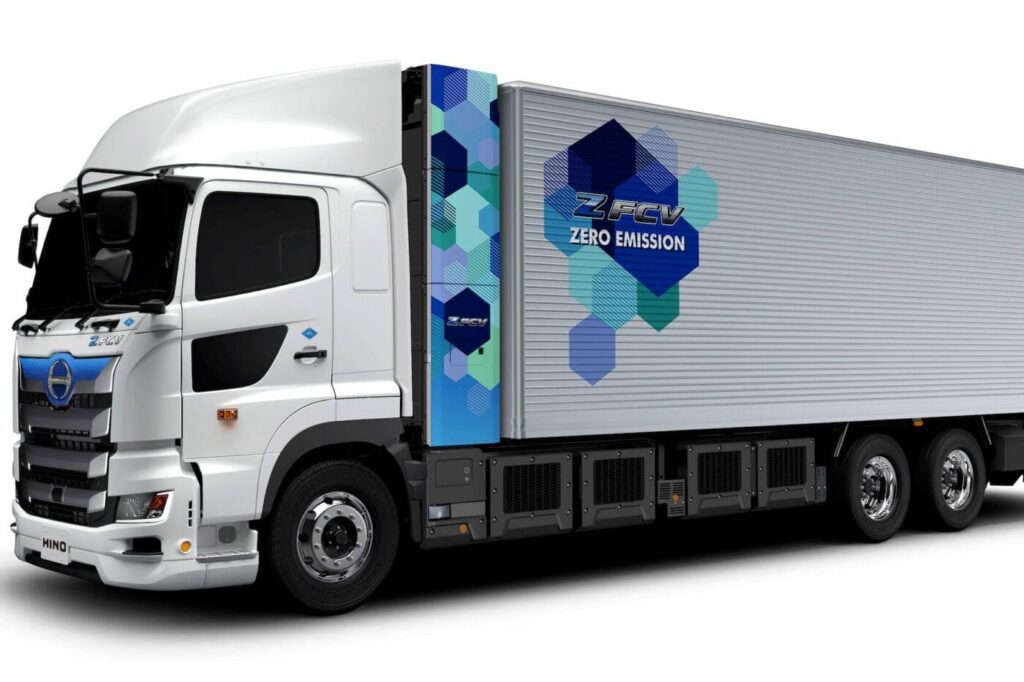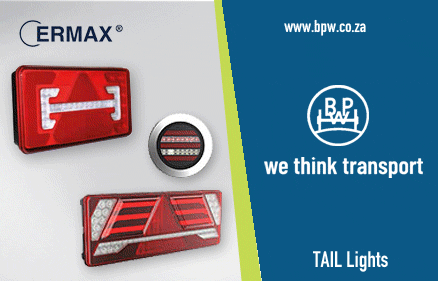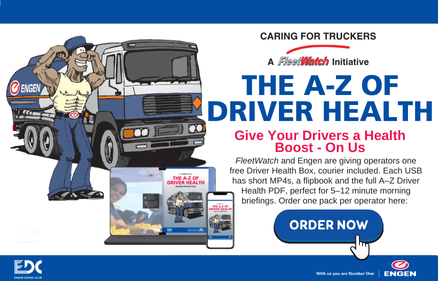Global truck manufacturers are finding strength in unity. As OEMs face new sustainability and technology frontiers, mergers like the upcoming integration of Mitsubishi Fuso and Hino Motors show how collaboration can unlock value for customers worldwide. Fleet operators stand to benefit most – with shared R&D, streamlined production and accelerated advances in zero-emission vehicle (ZEV) technology leading to lower costs, improved uptime and more efficient service networks.
In Tokyo recently, Mitsubishi Fuso Truck and Bus Corporation and Hino Motors Ltd confirmed that their new holding company will be called ARCHION, marking a major step towards the integration announced earlier this year. It was in June that Daimler Truck, Mitsubishi Fuso, Hino and Toyota Motor Corporation concluded “definitive agreements’ to integrate Mitsubishi Fuso and Hino Motors as a new Japanese truck powerhouse. Click here to read the story FleetWatch ran at the time.
Scheduled to begin operations on 1 April 2026, ARCHION represents what the partners describe as ‘delivering the future of commercial mobility’. The name fuses ‘arches’ – symbolising connection and strength – with ‘eons’, expressing a long-term commitment to future mobility.
Under the ARCHION umbrella, both brands will retain their identities while sharing technology, platforms and supply networks. The integration aims to deliver benchmark profitability through a comprehensive synergy strategy focused on product enhancement, portfolio expansion and efficiency gains.
“Today we take the next step to bring our shared vision to life,” said Karl Deppen, designated Representative Director and CEO of ARCHION, and current President and CEO of Mitsubishi Fuso. “With ARCHION, we aim to ‘deliver the future of commercial mobility’ for the benefit of our customers and all stakeholders.”
Realising synergies and growth opportunities
A key pillar is the Integrated Platform Strategy, which will align heavy-, medium- and light-duty vehicle development across both manufacturers. This will enable faster model launches, improved cost efficiency and a broader product range tailored to global fleets.
Backed by Toyota’s and Daimler Truck’s technological capital, ARCHION plans to consolidate domestic truck production into three sites by 2028 – Kawasaki, Koga and Nitta – optimising logistics and quality while phasing out duplicate operations.
Financial leadership will be driven by Hetal Laligi, designated CFO and Representative Director. “Our financial ambition for the new Group is rooted in a clear strategy: unlocking the full potential of this integration by realising synergies and growth opportunities,” said Laligi. “We aim to elevate financial resilience and performance to peer benchmark level.”
Satoshi Ogiso, CEO of Hino Motors and designated CTO, added that customer focus remains central: “First and foremost, we are committed to putting our customers at the centre of everything we do to drive customer business success.”
Prioritising new truck technologies
Beyond efficiency, ARCHION will channel savings into CASE (Connected, Autonomous, Shared and Electric) technologies. Hydrogen fuel cell systems and autonomous driving capabilities are priority areas, combining Daimler’s expertise with Toyota’s innovation leadership. The move is also expected to bolster Japan’s industrial base by sustaining advanced engineering jobs and reinforcing supply-chain resilience.
ARCHION’s planned shareholder structure will see Toyota and Daimler Truck each hold 25%, with full ownership of Mitsubishi Fuso and Hino. The company is targeting a future listing on the Tokyo Stock Exchange Prime Market.
Commenting on this next step in the integration of the two companies, Anton Falck, Vice President of Hino South Africa, said: “We’re pleased with the progress already made with the establishment of Archion, the new overall company. Hino will continue to operate independently in South Africa and our focus will be on retaining and building on our leadership in the Southern African market in terms of customer satisfaction, as demonstrated by our repeated No. 1 position in the quarterly Datatrack survey.”
Editor’s comment: ARCHION marks more than a merger – it’s a realignment of global truck manufacturing around sustainability, scale and customer value. For fleets, this means access to better-integrated vehicles, lower lifecycle costs and faster access to next-gen propulsion. If ARCHION can balance healthy brand rivalry with genuine collaboration, it may become the model for how legacy OEMs navigate the road to carbon-neutral transport.
Click on photographs to enlarge

